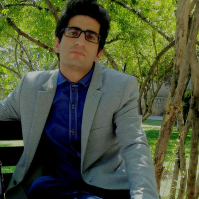The do's and don'ts of behavior in Shams's articles in connection with his ontological view
Spiritual journey can be considered as the most important pillar of Sufism and mysticism and as the feature distinguishing it from other religious systems. So, a great part of Sofieh teachings has been centered on defining and explicating this spiritual journey. Existence of different steps in the evolutional journey not only superficialy indicates the existence of rituals, attitudes and educational systems, but also is in depth an influence of Sufis’ ontological view (as the one who plans the journey for his followers). Therefore, the place of God and Man in the hierarchy of the being and the relationship between these two plays a crucial role in howabouts of the journey.
This research was conducted in a descriptive-analytical manner using library resources.
Shams Tabrizi is one of the influential Sufis of the middle Ages. He is also regarded as an innovative and creative mystic in areas of anthropology, theology and ontology. In many regards, for example in terms of spiritual journey he has new and innovative ideas that deserve more attention. He believes that man has fallen apart from his true place, which is Khaliftulah. Therefore, he can regain his position through doing some actions and avoiding some other actions.
Shams’ teachings regarding spiritual journey can be divided into two categories: 1) What the seeker should pay attention to on the outside and in the material life (human journey in society) & 2) what should happen in the heart and mind of the seeker (inner journey). In the first case, what is most important is the feeling of an inner need and a relationship based on love and knowledge of hijab, and te external requirement which must be observed by the seeker is choosing a guru.
Shams Tabrizi , Maghalat , God , Journey , Ontology
-
Colorless and unmarked; Beloved's experience in a poem by Rumi
DAVUOD SPARHAM *, Saeed Mazroeian
Journal of Mysticism Studies in Literature, -
The function of literature in talk shows: a comparative study of “Oprah Show” and “Mah-e Asal”
Habibeh Mohammad Yousefi *, Mohamadhasan Hasanzadeh Niri, Davood Sparham
Journal of Society Culture Media, -
From Simorgh's interview to political and social critic (A look at Attar's political and social thoughts)
*, Davood Sparham
Pajooheshname Erfan, -
زبان سیاسی صوفیه خراسان با تکیه بر هنجارگریزی و هنجارسازی
، داوود اسپرهم
پژوهشنامه عرفان، بهار و تابستان 1401



